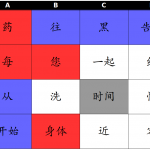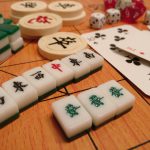Articles in the ‘Learning outside class’ category Page 12
-
Using speech recognition to improve Chinese pronunciation, part 1
Speech recognition technology has developed rapidly and can now be relied on to correctly identify standardised and clear pronunciation in Mandarin. But can it be used to check your Mandarin pronunciation? Not necessarily. There are two problems that need to be investigated to answer that question. This article looks at the first: If speech recognition is unable to identify what you say, does that mean that your pronunciation is bad, or could it be the speech recognition that isn’t good enough?
Read → -
Reading is a lot like spaced repetition, only better
Learning vocabulary through reading and by using spaced repetition software are both common strategies employed by students learning Chinese, but which one is the most efficient? In this guest article, Kevin Bullaughey from WordSwing compares the two methods in terms of exposure and coverage.
Read → -
Review: Language Empowerment: Demystify Chinese culture and fire up your Mandarin + interview with the author
Language Empowerment is a neat little book that manages to pack a lot of information and inspiration into relatively few pages. I highly recommend it for people who have just started learning Chinese or who are interested in doing so. This book covers many topics that you need to know about, but which few textbooks or teachers mention! It is also easy to access and enjoyable to read.
Read → -
Five text games for Chinese learners
This article is about five text games for Chinese learners. It both introduces the games and asks for feedback about how they can become even more engaging and fun. Each game contains on average roughly 10,000 characters, which makes them on par with a typical graded reader.
Read → -
Let’s play 迷霧中 (Into the Haze)
Let’s play 迷霧中 (Into the Haze)! In this post, I share a video where I play a small part of the game, summarising and commenting on what’s going on in English (the game is of course in Mandarin).
Read → -
Learning (or not learning) Chinese slang
Learning slang in Chinese can be fun, but it’s worth remembering that in most situations, it’s actually much less useful than more standard ways of expression. Slang is used in a limited context and changes quickly.
Read → -
Playing Codenames to learn Chinese and other languages
Codenames is one of my favourite games, and it also happens to be an excellent game for language learning! In this article, I suggest ways of playing it in Chines, along with a tool that generates grids of code words for direct use in the classroom or elsewhere!
Read → -
Into the Haze: A new text adventure game for Chinese learners
Into the Haze is an interactive text adventure game for Chinese learners. Your brother is missing and you need to enter a city covered in a poisonous haze to find him. The story is presented through text and audio, and depending on your choices, the game will develop differently. If you make bad choices, perhaps because you didn’t fully understand the options, you might fail and will have to try again. Good luck!
Read → -
10 ways of using games to learn and teach Chinese
Games are great for learning languages. Here are ten ways you can use games to learn or teach Chinese as a second language!
Read → -
A student’s guide to comprehension-based learning
In this third and final article, the focus is on how students can make their own learning comprehension-based, with or without a teacher. It draws from the principles and ideas of the previous articles and allows you to apply these to your own learning.
Read →









